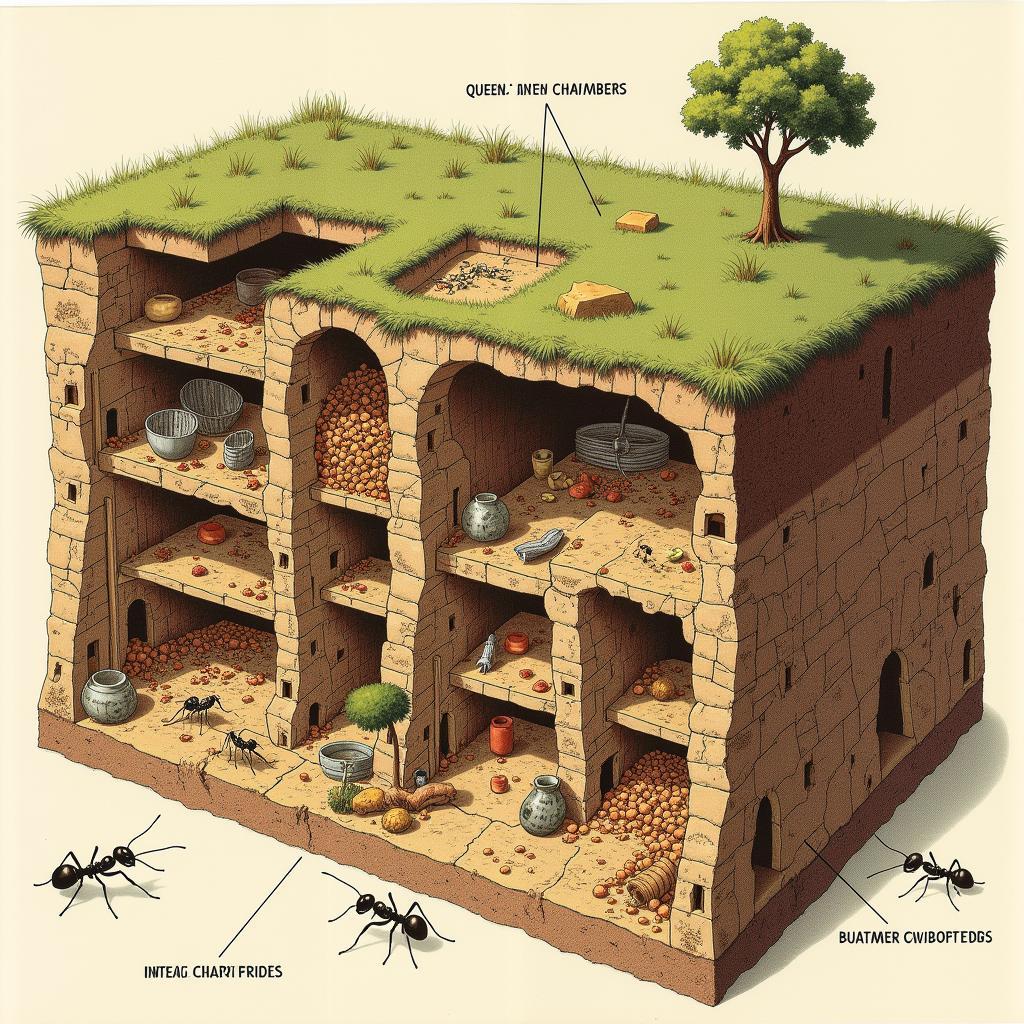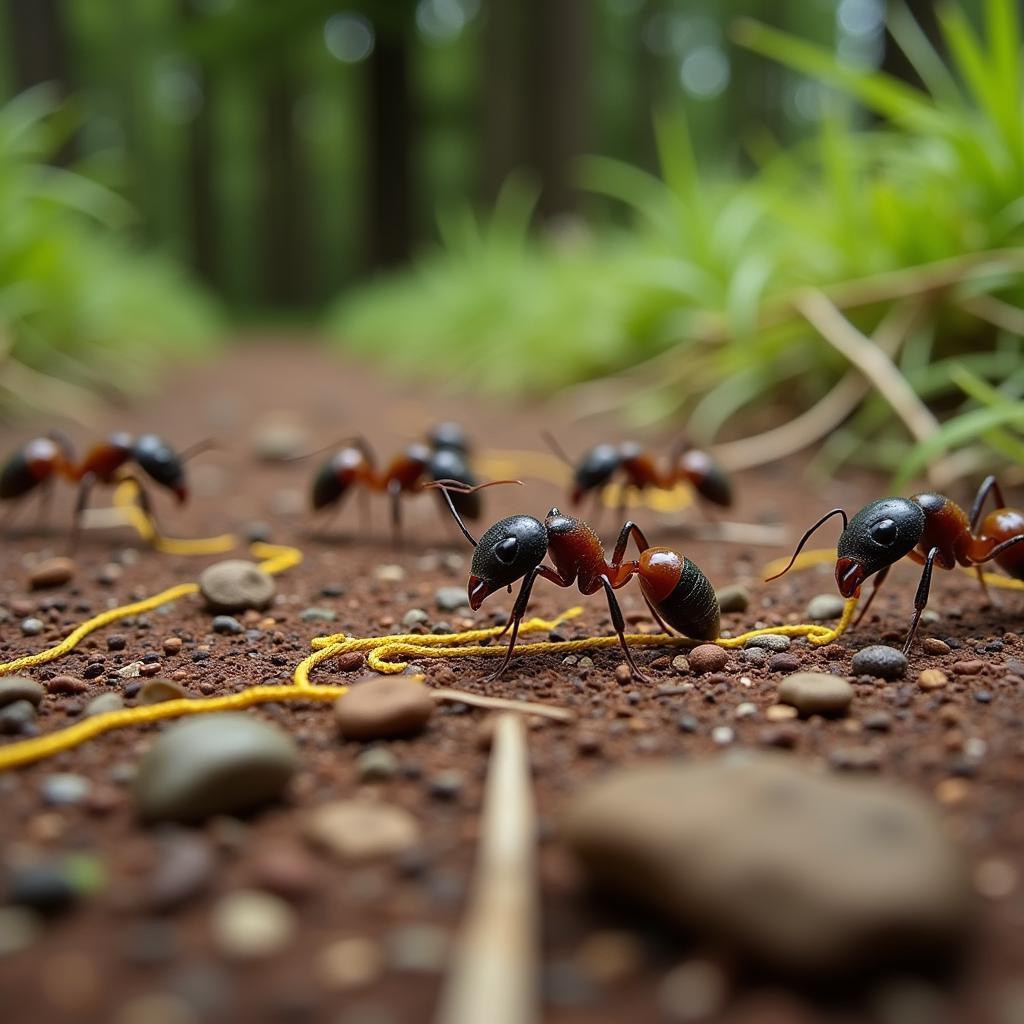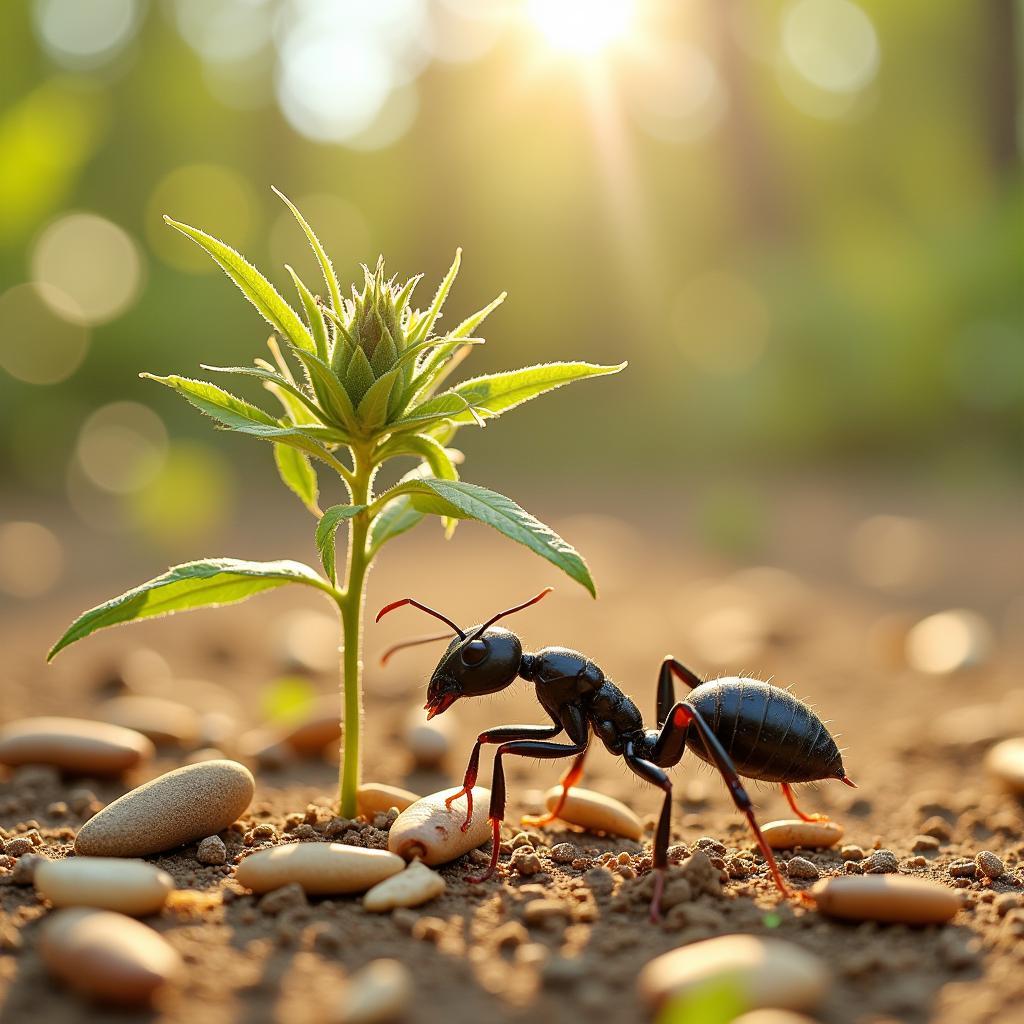Ant Research, the scientific study of ants, might seem niche at first glance. However, these tiny creatures hold a wealth of information crucial to understanding various aspects of biology, ecology, and even our own society.
 Ant Colony Structure
Ant Colony Structure
Delving into the World of Ants: More Than Meets the Eye
Ants, despite their diminutive size, are incredibly complex organisms. Their social structures, communication methods, and ecological impact are subjects of extensive scientific inquiry. Ant research encompasses a wide range of disciplines, from genetics and evolution to behavioral ecology and conservation.
One fascinating area of study is the organization of ant colonies. These intricate societies, often referred to as superorganisms, exhibit remarkable levels of cooperation and division of labor.
Ant Communication: A Symphony of Scents
 Ant Communication Using Pheromones
Ant Communication Using Pheromones
Ants primarily communicate through pheromones, chemical signals that elicit specific responses in other ants. These chemical messages play a crucial role in foraging, nestmate recognition, and even defense. Ant researchers study these intricate communication systems to understand the evolution of social behavior and the chemical ecology of these insects.
For instance, when an ant finds a food source, it leaves a pheromone trail back to the colony. Other ants, following this invisible pathway, reinforce the trail, leading to a highly efficient foraging system.
Ecological Significance: Tiny Architects, Massive Impact
Ants, as ecosystem engineers, play a vital role in maintaining the balance of nature. They contribute to soil aeration, seed dispersal, and even pest control. Understanding their ecological roles is crucial for conservation efforts and sustainable land management practices.
 Ants and Seed Dispersal
Ants and Seed Dispersal
Consider the case of leafcutter ants. These industrious insects, found in tropical regions, are known for their ability to defoliate entire trees. However, their underground nests, filled with decomposing plant matter, act as nutrient recyclers, enriching the soil and supporting a diverse ecosystem.
Ant Research and Human Society: Drawing Parallels
The study of ants extends beyond pure scientific curiosity. Researchers are exploring the potential applications of ant behavior and social organization in fields such as robotics, artificial intelligence, and even traffic management.
Ant colony optimization algorithms, inspired by the foraging behavior of ants, are being used to solve complex optimization problems in various industries.
Conclusion: The Unfolding Saga of Ant Research
Ant research, far from being insignificant, offers a window into the fascinating world of these tiny creatures and their profound impact on our planet. As we delve deeper into the mysteries of the ant world, we uncover valuable insights that can benefit both science and society. For further exploration, consider these resources:
For those seeking a deeper understanding of the intricacies of ant research, numerous resources and research papers are available online and in scientific journals.